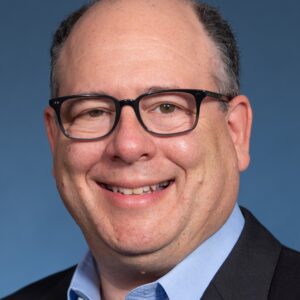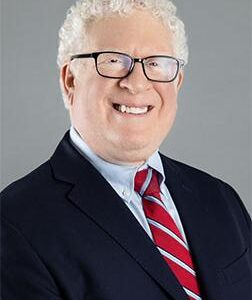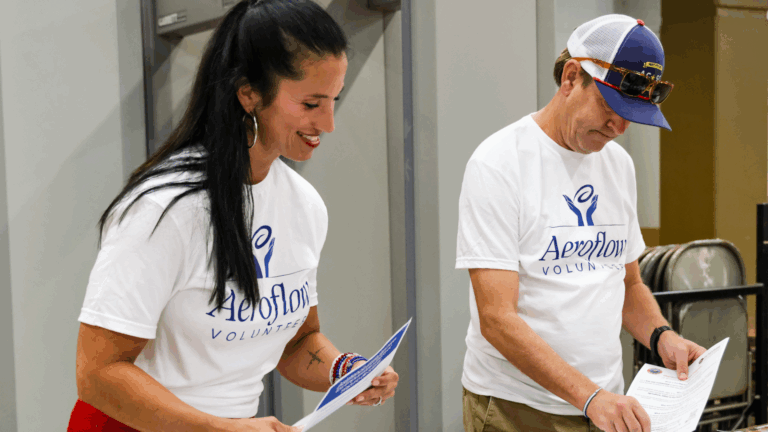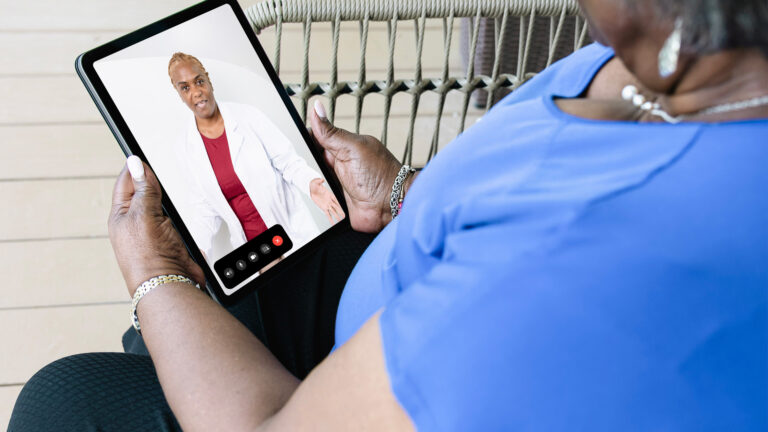Medical Nutrition Therapy (MNT) is a proven approach to managing diet-related health issues, especially for people with diabetes, yet it often remains underutilized. Dive into our blog inspired by our webinar, “Medical Nutrition Therapy (MNT) & Nutritional Counseling: A Holistic Approach for Patient Health,” to explore the critical role of MNT in improving health outcomes. For more comprehensive insights, you can watch a playback of the webinar here.
- What is Medical Nutrition Therapy (MNT) and how does it positively impact patients to help manage chronic conditions?
- What role do Dietitians, Primary Care Providers, and Endocrinologists play in Medical Nutrition Therapy (MNT)?
- Aeroflow strives to not only provide Durable Medical Equipment (DME) like continuous glucose monitors (CGMs) but also provide support for patients along their journey. What does Aeroflow’s Nutrition Program look like?
- How does Medical Nutrition Therapy get covered by insurance?
- What role does Medical Nutrition Therapy (MNT) play in supporting patients on GLP-1 medicines?
What is Medical Nutrition Therapy (MNT) and how does it positively impact patients to help manage chronic conditions?
Dr. Gabbay: This is an important question. I will start from the perspective of diabetes and obesity. In so many ways, diabetes is the poster child for the value of Medical Nutrition Therapy. We know that the diet of someone with diabetes has a profound influence on overall outcomes.
Recent data published shows that 38 million people are living with diabetes, 97 million with pre-diabetes, and three-quarters of Americans are either overweight or obese. For those in that pre-diabetes category, we know that from large randomized trials, Medical Nutrition Therapy can lower their risk of developing diabetes by almost 60%. With one out of four healthcare dollars going towards diabetes, MNT is very important.
Medical Nutrition Therapy is proven to be effective in improving A1C, the measure of average glucose, which is the predictor of further complications of diabetes like eye disease, kidney failure, amputations, and more. In ten years, obesity is expected to cost 9.1 trillion dollars.
Medical Nutrition Therapy provides the guidance, tools, and problem-solving around eating and how it affects one’s health. This is important not only for those with diabetes but also for anyone with a chronic disease. What we eat makes such a difference!
What role do Dietitians, Primary Care Providers, and Endocrinologists play in Medical Nutrition Therapy (MNT)?
Sophie: Medical Nutrition Therapy is essentially a therapeutic dietary approach to preventing or managing chronic diseases. It involves meeting with a registered dietitian either individually or in a group setting to collaboratively assess a patient’s nutritional status. The dietitian assigns a nutrition diagnosis and develops a personalized nutrition intervention based on the patient’s needs, medical history, lab results, finances, and lifestyle. Ultimately, we conduct regular follow-ups to monitor the patient and evaluate whether our goals are being achieved. We also troubleshoot any challenges that are coming up to ensure that the patient can be successful with their plan.
For conditions like Type 2 diabetes, we want to improve glycemic control, reduce the risk of developing cardiovascular disease, and improve weight control. In terms of our role as the “food police,” I think a lot of patients think that they don’t need to see a dietitian because their mindset is that they know what they need to do already, and they just need to do it.
I think the role of dietitians in facilitating behavior change is lesser known. Our role is not just assigning the plan but helping the patient actually get there. This is often where we provide the most value.
Aeroflow strives to not only provide Durable Medical Equipment (DME) like continuous glucose monitors (CGMs) but also provide support for patients along their journey. What does Aeroflow’s Nutrition Program look like?
Sophie: We are currently offering individual and group sessions with registered dietitians via telehealth. Some of these classes are about diabetes nutrition, heart-health nutrition, and now we have a class about how to navigate nutrition during the holidays. We’re working with patients with diabetes on weight loss, and for many patients, we’re talking about similar dietary interventions. Our sessions encourage increasing the intake of fiber-rich foods, reducing added sugars, eating more whole foods, reducing sodium intake, being more active, and our ultimate goal is to empower patients to make informed choices that work for them.
The dietitian is there as a personalized guide to support the patient throughout the process. For example, we help by sending recipe shopping lists, sending additional educational resources, brainstorming kid-friendly recipes and more. We now have an open-format class where patients can ask questions about their nutrition or CGM use, and we’ve seen great success so far!
How does Medical Nutrition Therapy get covered by insurance?
Ryan: Medicare-covered medical nutrition therapy is becoming more and more normalized. Medicare covers 3 hours of MNT in the first year and 2 hours annually thereafter. However, without proper follow-up, only 1 in 4 patients adhere to recommended nutrition plans for more than 6 months. The 3 hours given by Medicare may be limiting for patients needing the space and time to make lasting changes, so I do think there is still a lot of work to be done in the expansion of coverage.
The food we consume and the activities we take part in will ultimately impact the outcomes that are achieved, and so that’s something we want to peel back the layers on with the work we’re doing at Aeroflow. Being able to report the outcome data from our MNT program to health plans is a start.
Sophie: I think there is also a challenge with the Medicare coverage because those 3 hours are only for those with diabetes or kidney disease. Right now, Medicare isn’t covering a wide array of various diagnoses. For example, pre-diabetes or preventative services are not covered, and these are very important when we consider the importance of prevention.
Dr. Gabbay: MNT is such a cost-effective intervention for people with many chronic diseases. As we think about how the various health insurance coverages differ, the lack of expansion in coverage also turns into a barrier for clinicians in terms of referral because they don’t know whether it will be covered or not. So, having a more uniform approach would be helpful.
Less than 50% of eligible patients take advantage of MNT services due to a lack of awareness, and I think this provides the promise that there really is value in MNT services and should be something that health plans think about as they branch further out into MNT.
What role does Medical Nutrition Therapy (MNT) play in supporting patients on GLP-1 medicines?
Dr. Gabbay: One thing that people often are unaware of is that most of the studies and clinical trials that led to the approval of these medications included medical nutrition therapy as part of the intervention. So, if you look at the gap between real-world evidence and what we’re seeing in the field using these medications, you will see that we’re not seeing quite the same weight loss as we did in those clinical trials. The difference is the lack of MNT.
I think the other important area is around side effects. An astounding amount, about half of the people using these medicines stop within the first year, and side effects are certainly part of that. Not only can nausea and vomiting be managed with appropriate eating behaviors, but also one area of concern is the loss of lean muscle mass and ensuring proper protein intake can help reduce the muscle loss.
To learn more about Aeroflow Health’s Medical Nutrition Therapy Program, click the button below.

Mike is a geriatrician and attorney with extensive experience designing and implementing value-based care, quality improvement, and care management programs for healthcare providers and health plans. He was the fractional (part-time) Chief Medical Officer (CMO) for Uber Health and currently is the CMO for technology-enabled health services companies, value-based care organizations, and digital health companies. Previous roles include CMO for Bright Health Plan, an innovative health insurer; CMO for CareCentrix, a leading outsourced home health, durable medical equipment, and post-acute care benefits manager acquired by Walgreens; and CMO for the New England Quality Care Alliance (NEQCA), the physician network affiliated with Tufts Medical Center, where he implemented network-wide quality improvement and care management programs for 150,000 managed care lives. He trained in internal medicine at Beth Israel Hospital in Boston and did his geriatrics fellowship at Harvard Medical School. He has degrees in law and medicine from the University of Illinois.

Sophie Lauver is a Registered Dietitian and Board Certified Health and Wellness Coach passionate about helping people take control of their health and get excited about nutrition. Sophie has a Bachelor’s degree in Communication from the University of Delaware and a Master’s degree in Dietetics from Eastern Michigan University. Sophie has worked in a wide variety of settings including hospitals, long-term care, rehabilitation, and wellness technology, and most recently, served as the director of the nation’s largest diabetes prevention program. Sophie lives in Baltimore, MD with her husband, infant son, and their two dogs and two cats. When she’s not working with clients, she enjoys cooking, not doing dishes, trying new restaurants, and spending time being active outside (especially on warm and sunny days).

Ryan serves as Chief Strategy Officer at Aeroflow Health, a premier nationwide provider of durable medical equipment. In his current position, Ryan oversees strategic operations, corporate development and government relations. For over 14 years, Ryan has provided exceptional leadership, management and vision to Aeroflow, resulting in incredible growth and profitability for the company. Ryan holds a Bachelors of Science degree in Electronic Engineering from Western Carolina University and resides with his family in the beautiful mountains of Asheville, North Carolina.

Robert A. Gabbay, MD, PhD, FACP is Associate Professor at Harvard Medical School and the Joslin Diabetes Center and former Chief Scientific and Medical Officer of the American Diabetes Association (ADA). Throughout his vibrant career he has had many accomplishments as a basic science researcher, developer of patient communication tools, creator of the first broad scale diabetes registry, designer of care management training programs, digital health innovations, and leader of one of the largest primary care transformation efforts in the US around the Patient Centered Medical Home.
The reach of his work has been recognized through leadership roles in national and international arenas. Dr. Gabbay has served as visiting professor, keynote speaker, and on organizing committees for global meetings of the ADA, International Diabetes Federation, Endocrine Society, and the Diabetes Technology Society. Along with an extensive peer reviewed publication record, he has appeared in and is frequently quoted by the popular press including the New York Times, CNN, the Washington Post, and NPR.
At the ADA, Dr. Gabbay has led many transformational initiatives including guiding the ADA to a deeper focus on primary care through the establishment of the Primary Care Council (comprised of leading primary care organizations in the US) and the ADA Primary Care Alliance of over 2000 primary care practices committed to transform diabetes care to the reinvigoration of the Standards of Care, the expansion of the Diabetes Prevention Program (DPP) through a multi-year $12.5 million CDC initiative, the launch of the Institute of Learning (IOL), establishment of the Leapfrog initiative to recognize quality care hospital systems for people with diabetes, and leading the association with innovation at the ADA Scientific Sessions and with the ADA’s Innovation Challenge.
References
Desroches, S., et al. (2013). “Barriers and facilitators to dietary advice provision by physicians: A review of the literature.” Patient Education and Counseling, 91(1), 36-44.
Franz, M. J., et al. (2010). “The evidence for medical nutrition therapy for type 1 and type 2 diabetes in adults.” Journal of the American Dietetic Association, 110(12), 1852-1889.
Anderson, G. (2010). “Chronic Care: Making the Case for Ongoing Care.” Robert Wood Johnson Foundation.
Wadden, T. A., et al. (2011). “One-year weight losses in the Look AHEAD study: factors associated with success.” Obesity, 19(5), 1234-1238.



